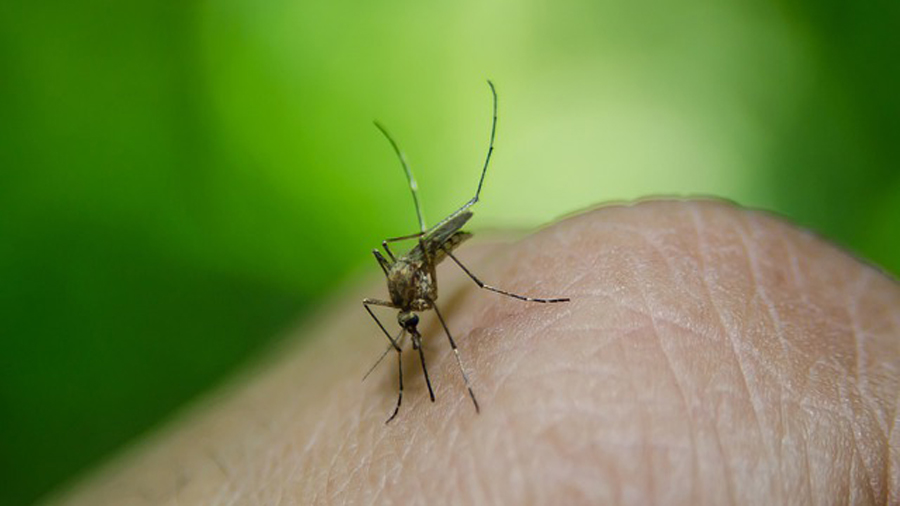West Nile virus detected in Utah County mosquitoes
Aug 10, 2023, 1:28 PM | Updated: Sep 1, 2023, 10:24 am

Mosquitoes can transmit the West Nile Virus. (File photo)
(File photo)
PROVO, Utah — Utah County health officials confirmed mosquitoes that were trapped in the south Provo/north Springville area have tested positive for West Nile virus.
The Utah County Health Department treated the area with larvicide via drone on Tuesday and sprayed the area via truck on Wednesday. Officials said aerial spraying was postponed due to President Joe Biden’s visit on Thursday.
“With the extreme high-water we have had this spring, this has been a massive mosquito year, as we were expecting, the second highest in the last 15 years,” said Dan Miller, director of the Utah County Health Department’s mosquito abatement district.
“While Utah County does not currently have any confirmed human or equine cases of West Nile virus, this is an important reminder of the importance of taking steps to protect themselves from mosquitoes,” said Eric Edwards, Utah County Health Department executive director.
The virus has also been detected in mosquitoes in Davis County.
Tips to reduce mosquito exposure
- Wear long sleeves, long pants and socks while outdoors and use an insect repellent with 20%-30% DEET, which is safe to use during pregnancy. Repellents are not recommended for children younger than 2 months of age.
- The hours from dusk to dawn are peak biting times for many mosquitoes. Consider rescheduling outdoor activities that occur during the evening or early morning.
- Mosquitoes lay their eggs in standing water. Remove any puddles of water or standing water including in pet dishes, flowerpots, wading and swimming pools, buckets, tarps and tires.
- Report bodies of stagnant water to your local Mosquito Abatement District (MAD). Visit http://www.umaa.org/ for a list of MADs.
- Keep doors, windows, and screens in good condition and make sure they fit tightly.
- Consult with an immunization travel clinic before traveling to areas that may have mosquito-borne illnesses, such as Zika or dengue, and take the necessary precautions.
West Nile virus is usually transmitted to humans through the bite of an infected mosquito, but not all mosquitoes carry the virus. Symptoms of the severe form of West Nile virus include high fever, severe headache and stiff neck, disorientation and confusion. If you are experiencing symptoms, contact your healthcare provider immediately.
The Utah Department of Health and Human Services said most people infected with West Nile virus don’t develop any symptoms, but about one in 150 people develop a severe illness that affects the central nervous system. Among patients with the neuroinvasive disease, about one in 10 die.
Mosquito problems this summer
Mosquito abatement crews say they are dealing with more marshland than they’ve seen in decades. Because water levels at the Great Salt Lake have been so far down in recent years, it’s allowing the creation of tens of thousands of acres of freshwater marshlands in northern Utah.
“We more than tripled the number of acres that we normally spray in May, just because of the large number of adults we’re seeing,” Hatch told KSL TV in June.
Hatch added the species of mosquito that carries West Nile virus has started to hatch “in big numbers.”















